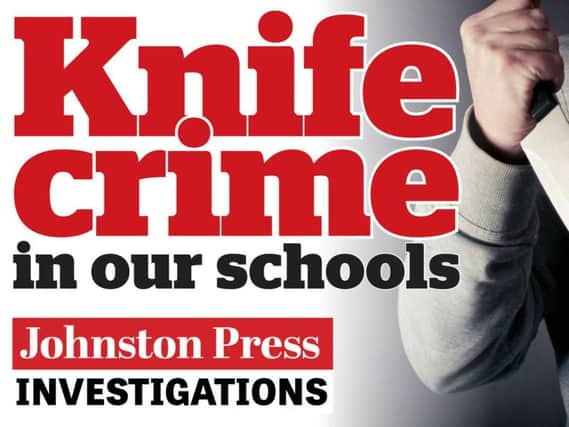FACTFILE: What schools can and cannot do when searching pupils


Headteachers must authorise a staff member to carry out any search and they are normally done by teachers who are the same sex as the pupil.
Searches can only take place if teachers have “reasonable grounds” that a child may have a prohibited item.
Advertisement
Hide AdAdvertisement
Hide AdThe guidance, issued this month for English schools, says this includes if pupils are heard talking about what they have or if they are thought to be hiding a weapon.
People searching pupils can require they remove outer clothing and search their pockets - and can use force.
Staff - other than security workers - can refuse to carry out the search.
A witness has to be present, unless there are exceptional circumstances and it must take place on school grounds.
Advertisement
Hide AdAdvertisement
Hide AdProhibited items that can be searched for include: knives, weapons, alcohol, illegal drugs and stolen goods.
Any item that staff fear could be used to commit a crime, injure someone or damage property is also included.
Weapons found by staff must be passed to police “as soon as possible”.
Privacy rights within the Article 8 of the European Human Rights Convention means any search must be “justified and proportionate”.
Advertisement
Hide AdAdvertisement
Hide AdSchools can use body scanners or wands to screen pupils’ entry on to the premises.
Teachers can decline to allow pupils in if they refuse to go through metal detector arches or be scanned with a wand.
The pupil would be classed as having an unauthorised absence if that happened.
Government guidance issued to headteachers says that such screening is allowed even if pupils are not suspected of having weapons.
The screening does not require consent, according to the guidance for English schools issued this month.